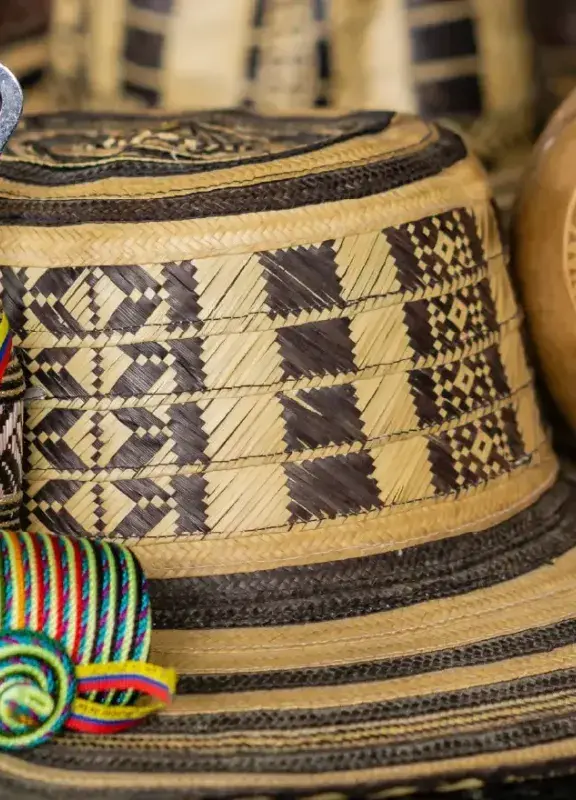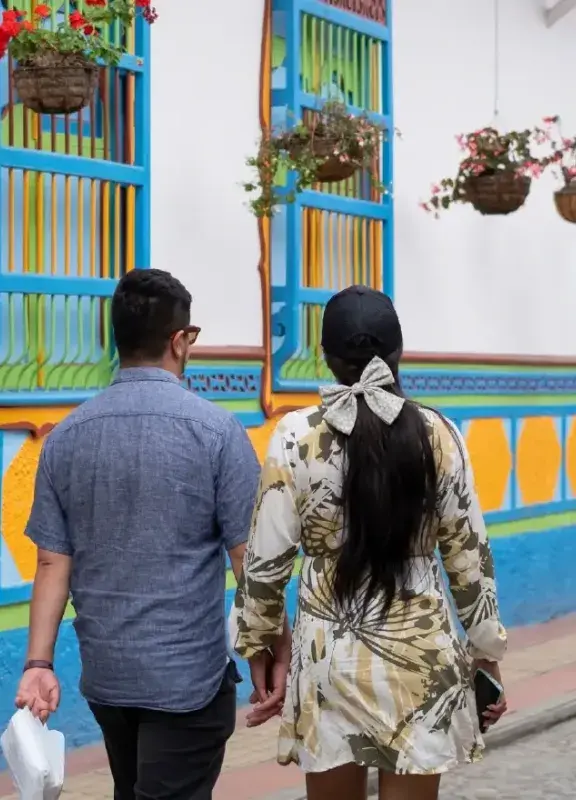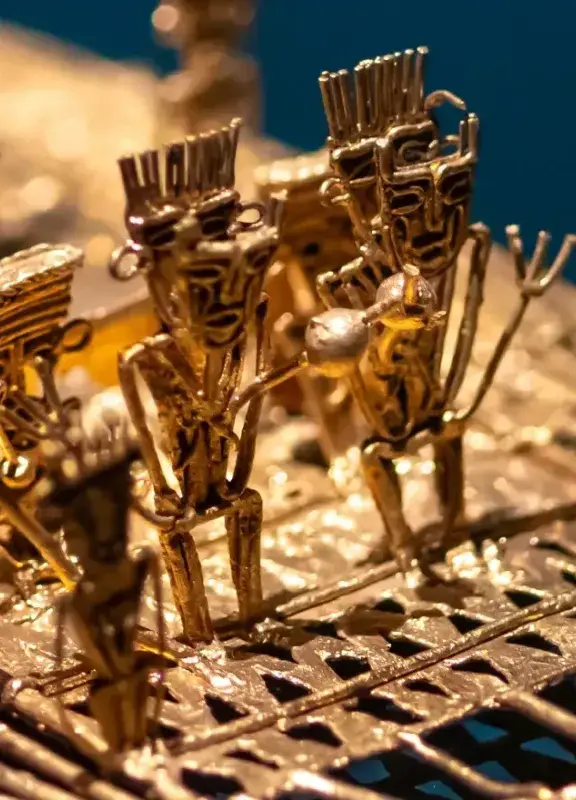Colombia, a country that celebrates its ethnic diversity
Due to its location and the large number of cultures that have entered the country, several ethnic groups have emerged to represent our roots full of flavor and joy.
Colombia has one of the most representative ethnic presences in South America.
The ethnic and cultural diversity of the country is due to its geographical location, as it is located at the gateway to South America. A strategic crossroads where the north and south of the continent meet. It is also a historically significant point for the arrival of Spaniards and Africans to the Americas.
The Amerindians, African immigrants, and Hispanic immigrants from the colonial era are the predecessors of the 84 indigenous ethnicities, the 3 distinct Afro-Colombian population groups, and the gypsy people who inhabit our territory, forming the ethnic diversity in Colombia.
Here, we are diverse, different, and authentic. We are proud of this and show it every day through our traditions, gastronomy, dance, and behaviors full of flavor. These are good reasons to enjoy this land! Come to Colombia and discover the most welcoming country in the world.
Location of Ethnicities in Colombia
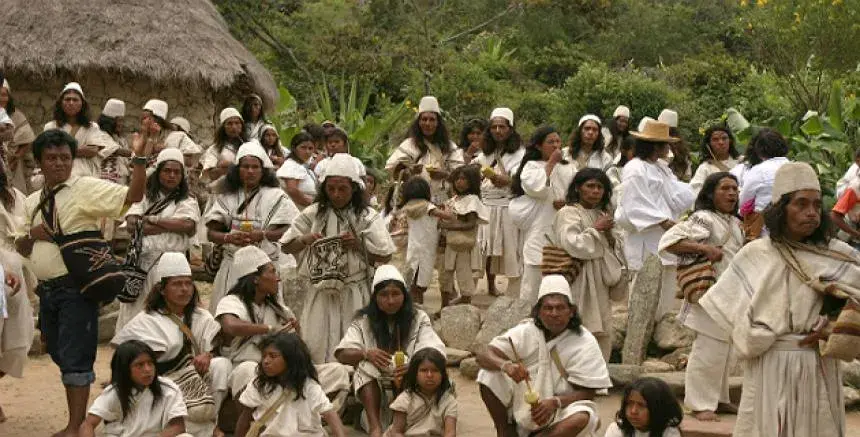
Indigenous community of Colombia – Arhuacos
These groups inhabit the wonderful regions of the country, where they have left an indelible mark full of magic, tradition, and history. Although the indigenous and Afro-descendant populations have distinct identities, they are united by their love for nature and their environment.
The indigenous ethnicities , which represent 3.4% of the national population, are mostly distributed in rural areas of Colombia, with greater presence in the departments of Cauca, Nariño, La Guajira, Putumayo, and Amazonas.
The Afro-descendant population, making up 10.6% of the national population, is located in the Colombian Pacific corridor, in the Archipelago of San Andrés, Providencia and Santa Catalina, in the community of San Basilio de Palenque, and in some capital cities across the country.
The gypsy communities, on the other hand, are distributed in popular areas of the cities and in variable groups called kumpanias, and it is estimated that they total about 5,000 people.
Cultural Wealth of Colombia
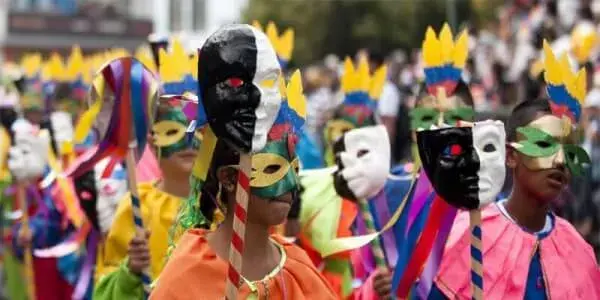
Carnival of Blacks and Whites – Nariño.
The Carnival of Blacks and Whites – Nariño. The plurality of ethnicities is a source of national pride and significantly contributes to Colombia's intangible cultural wealth index. Our country has, for example, around 65 Amerindian languages, which are joined by Creole languages such as Bandé, Palenquero, and Romani.
What languages are spoken in Colombia?
Spanish is the official language of Colombia, derived from Latin and introduced from Europe in the 16th century. Local variations include numerous dialects, each very specific to its region. Around 10 dialects of Spanish with clearly differentiated phonetic features are spoken in the country. These are the main Colombian accents:
The Cundiboyacense (from Cundinamarca and Boyacá), the Paisa (from Antioquia and Old Caldas), the Valluno (from Valle del Cauca), the Rolo (from Cundinamarca and central Colombia), the Costeño (from the Caribbean region), the Pastuso (from Nariño), El Patojo (from Cauca), the Opita (from Tolima and Huila), the Santandereano (from Santander and Norte de Santander), the Chocoano (from Chocó), and the Llanero (from Meta, Casanare, Arauca, and Vichada).
Colombia has about 68 native languages organized into: 65 indigenous languages, 2 Creole languages, one Romani language, and a sign language.
Among the most important and still living languages are: Arawak languages, like the Wayúu of La Guajira; Barbacoan languages, in Nariño and Cauca; Carib languages, in Amazonas, Guaviare, and Cesar; Chibchan languages in the Sierra Nevada de Santa Marta and El Cocuy; Chocó languages, such as Emberá and Wounaan; Guahibana languages, in Los Llanos del Orinoco; Makú languages, in Vaupés and Guaviare; among others.
Colombian Diversity and Tradition
All this diversity has made Colombia a country that brings out the best in its inhabitants and visitors, from Latin flavor to every detail that makes us unique. From the language to indigenous dances and festivals like the Carnival of Blacks and Whites , where dancing and celebrating diversity never stop.
For all these reasons, we can say that Colombia is unique for its cultural wealth, its ethnic diversity, and the wonderful experiences it offers.
 Welcome, you are in
Welcome, you are in 









